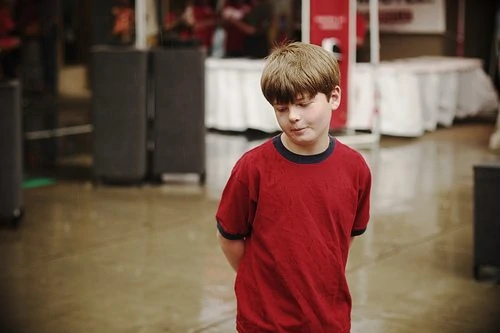There are so many ways you can understand the recent blockbuster Barbie, a film we finally got around to streaming not too long ago. Most obviously, it’s a multifaceted critique of patriarchy. Barbieland itself, as psychotherapist Wendy Jones astutely noted not long after the film’s theatrical release,
embodies a patriarchal vision of a feminist universe since feminist theories do not advocate a simplistic reversal of privilege in which someone is still oppressed and disempowered.
In this case, it’s the Kens. “Barbie has a great day every day,” the narrator tells us, “but Ken only has a great day if Barbie looks at him.” He is otherwise a nothing, albeit with some mad beach skills. He has no purpose beyond being just another of Barbie’s limitless accessories.
Yet even in our own very real world, where sex and gender inequities still persist, sometimes in very odd ways, more than a few men and boys wind up feeling like Ken. Just as in the movie, it can lead to them acting out in rather destructive ways.
“I Was Lashing Out Because I Wasn’t OK”
“I was lashing out because I wasn’t OK,” Benjamin Nichols said of his youth in a recent AP article on the gender gap in education, where girls collectively outperform boys. Nichols dropped out after 9th grade, although he eventually earned his GED and a two-year degree in electrical construction and maintenance. “The more and more of me getting punished and reprimanded, I just lashed out more.”
“The best piece of advice that I probably would have given teachers back then when dealing with me is to ask if I’m OK,” he said. “No one even bothered really to ask the question.”
Certainly, recognition is vitally important to all children. It’s a human need to belong somewhere and feel understood and appreciated for who we are. Humans thrive when we feel cared for. Studies have shown a decrease in destructive behavior when kids are made to feel like they matter.

According to Ioakim Boutakidis, a professor of child and adolescent studies at Cal State Fullerton and a member of the American Psychological Association’s National Taskforce on Boys in School,
Studies have shown that boys may be a bit behind girls developmentally when they begin formal classroom instruction. When it comes to the parts of the brain that are about executive functioning, delayed gratification and self regulation, those mature later for boys than they do for girls. Once boys are on this trajectory, it tends to generate these self-sustaining effects, and the gap continues to widen as they go through high school and college.
This can be exacerbated by how their daily lives are structured, starting with the school day. As Reeves explained in a recent interview for Edutopia,
I think it starts when the first bell rings: the fact that we start school, especially high school, so early in the day. That’s bad for girls too, but it looks like it might be even worse for boys. So I think starting school later is a good idea.
Then there’s the need for more frequent breaks, which does seem to break [down] by gender. There is pretty good evidence that boys find it harder than girls to sit still, to focus. I know I did. I was put in a remedial English class because I just couldn’t focus. Today, I would be diagnosed with attention deficit disorder. Moving around more is important. We’ve downgraded phys ed and regular movement, regular breaks: Students are flesh and blood, they’re not brains on a stick.
Mindful Movement: One Tool for Helping Boys Succeed
Growing boys have a developmental need for more active, physical play. More, as Certified Yoga Calm Instructor Jeff Albin has put it, “The desire to be strong, competent, fierce and protective at the same time runs through the DNA of all males.”
The key is indeed to channel these drives. We need to guide boys to positive, prosocial ways of filling that desire. We need to show them how to grow into responsible men who can find their purpose and place in the world.

Numerous posts in our blog archives explore these matters more fully, and some offer specific tips for working with boys to address their developmental needs in positive ways that can lead to better, happier outcomes for all. Here are a few that can serve as a launchpad for learning and thinking more about these issues:





